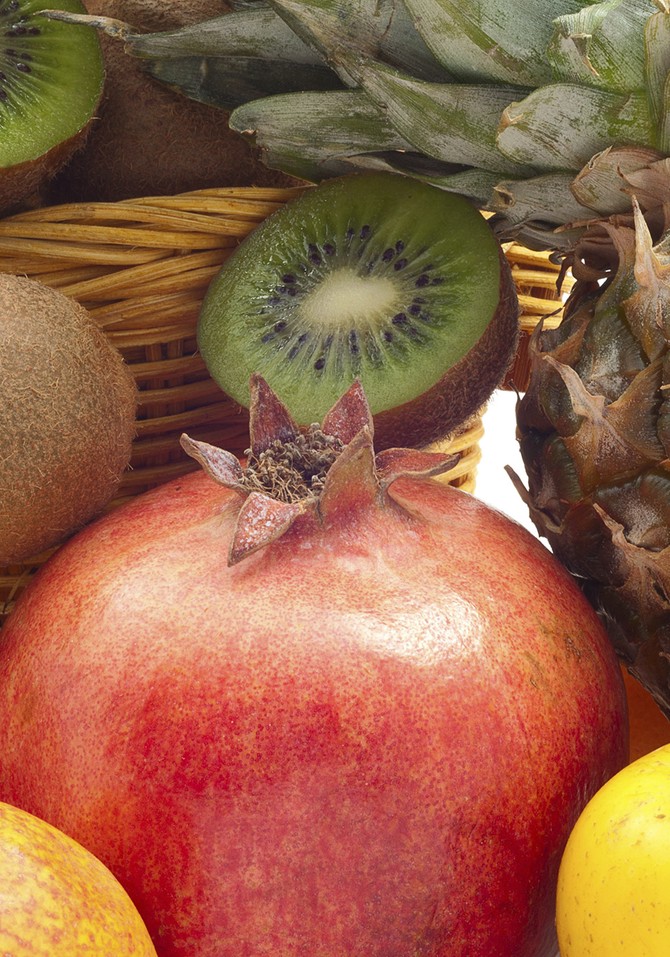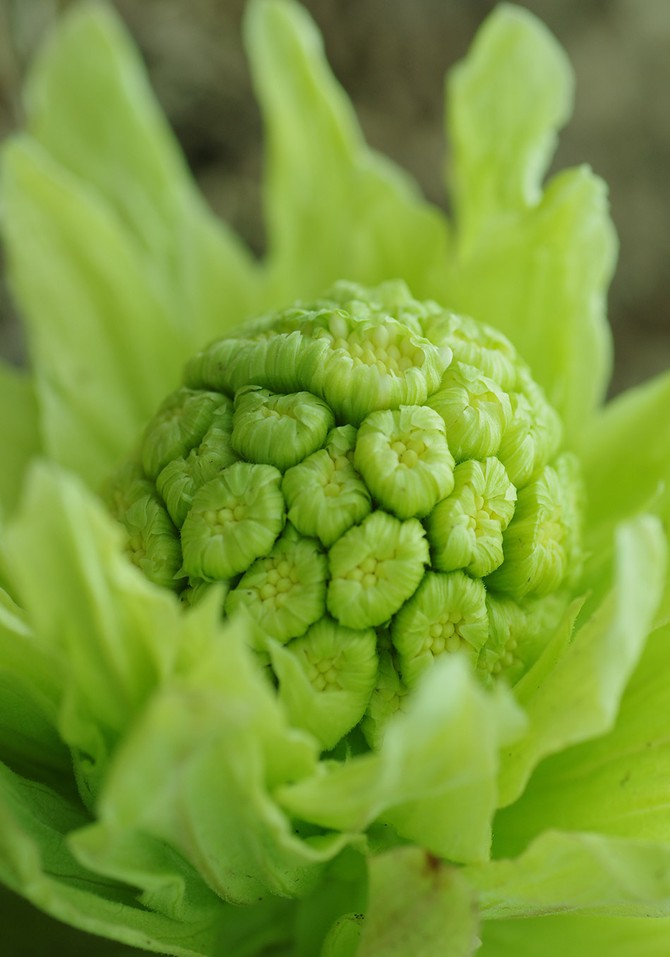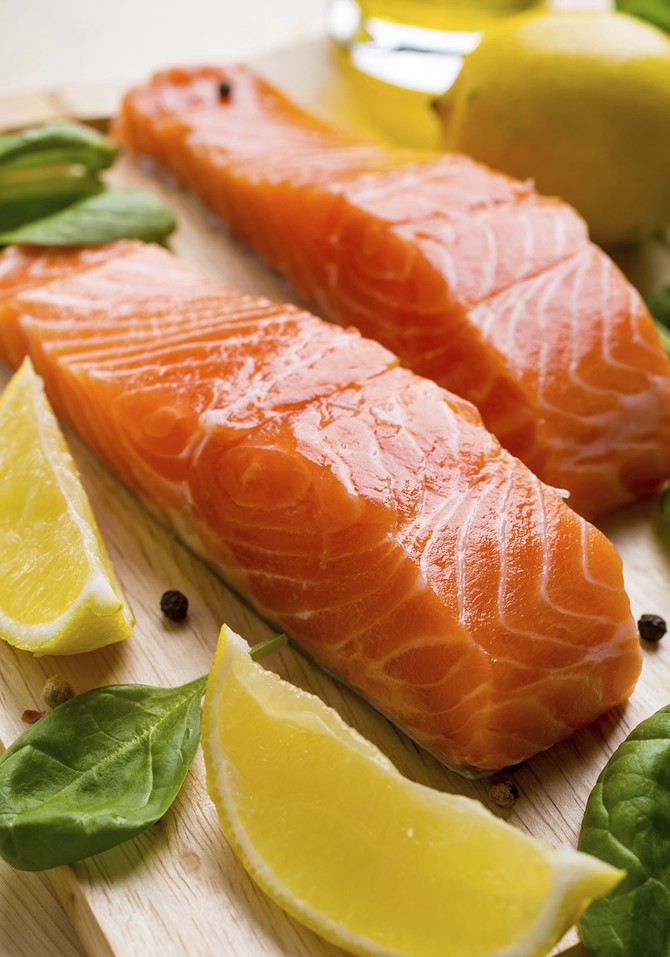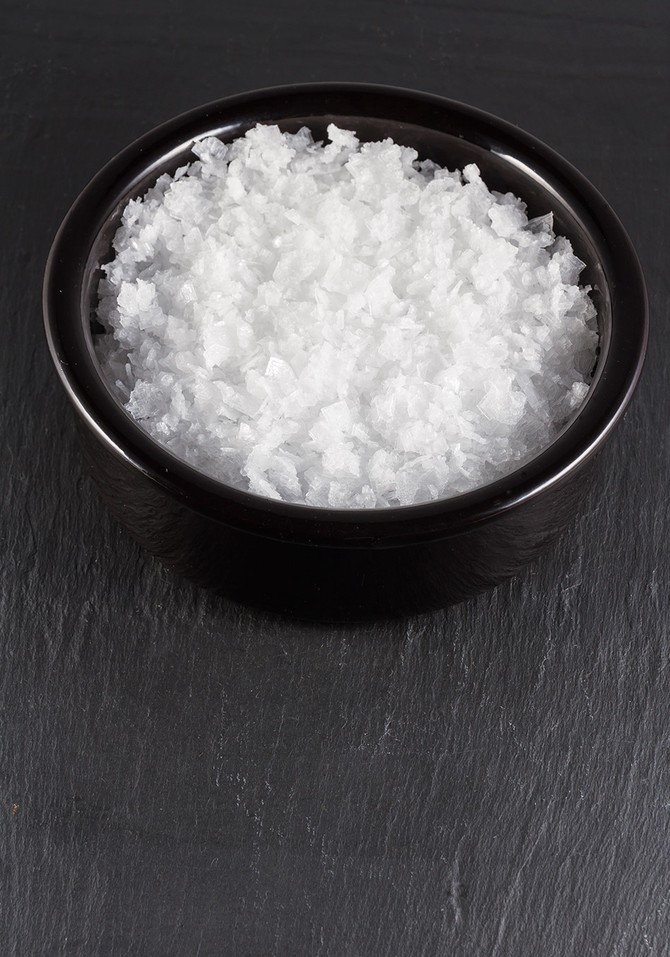7 All-Natural Allergy Treatments
Maybe you don't want to deal with side effects like drowsiness, or you feel that pills and nasal sprays don't jibe with your let-the-body-heal-itself philosophy. Here are some natural alternatives.
By Corrie Pikul

Photo: Nic_Ol/iStock/360Thinkstock
The Fruit Cocktail You’ve Never Heard Of
Try: Quercetin, a bioflavonoid found in grapefruit and apples (as well as red wine, onions and black tea) and bromelain, an enzyme cocktail that's abundant in the stems and juice of pineapples.
Why: Quercetin acts like a natural antihistamine to prevent allergic reactions—at least in test tube studies. Bromelain has long been used as an anti-inflammatory, and it happens to be a great buddy for quercetin: It helps increase the absorption of quercetin into the bloodstream.
How: Taking quercetin and bromelain together may help prevent the immune response that causes symptoms like itchy eyes, sneezing and a runny nose, says Sezelle Gereau-Haddon, MD, an integrative otolaryngologist with the Mount Sinai Beth Israel Center for Health and Healing. She recommends supplements because you'd need to eat a cornucopia of fruit to get noticeable results.
Why: Quercetin acts like a natural antihistamine to prevent allergic reactions—at least in test tube studies. Bromelain has long been used as an anti-inflammatory, and it happens to be a great buddy for quercetin: It helps increase the absorption of quercetin into the bloodstream.
How: Taking quercetin and bromelain together may help prevent the immune response that causes symptoms like itchy eyes, sneezing and a runny nose, says Sezelle Gereau-Haddon, MD, an integrative otolaryngologist with the Mount Sinai Beth Israel Center for Health and Healing. She recommends supplements because you'd need to eat a cornucopia of fruit to get noticeable results.

Photo: 毛利 昌弘/iStock/360/Thinkstock
The Shrub That Prevents Headaches (and Nasal Congestion)
Try: Butterbur, a shrub that grows in wet, marshy ground. The name comes from the traditional use of the plant's large leaves as a butter protector in warm weather.
Why: Butterbur supplements can be just as effective as oral antihistamines for allergy symptoms like itchy eyes, found a government-supported clinical trial of 125 participants. Other studies suggest that the herb can help allergy-related headaches and nasal congestion.
How: Gereau-Haddon recommends supplements but points out that butterbur is part of the ragweed family, and, unfortunately, about 75 percent of people allergic to pollen-producing plants are also sensitive to ragweed (as well as birch trees, chrysanthemums, marigolds, and daisies). So talk to a doctor before giving this a try, and then use only supplements labeled "PA-free" or "PA-safe" which means they're free of pyrrolizidine alkaloids—chemicals that can damage the liver.
Why: Butterbur supplements can be just as effective as oral antihistamines for allergy symptoms like itchy eyes, found a government-supported clinical trial of 125 participants. Other studies suggest that the herb can help allergy-related headaches and nasal congestion.
How: Gereau-Haddon recommends supplements but points out that butterbur is part of the ragweed family, and, unfortunately, about 75 percent of people allergic to pollen-producing plants are also sensitive to ragweed (as well as birch trees, chrysanthemums, marigolds, and daisies). So talk to a doctor before giving this a try, and then use only supplements labeled "PA-free" or "PA-safe" which means they're free of pyrrolizidine alkaloids—chemicals that can damage the liver.

Photo: olgna/iStock/360/Thinkstock
The Dinner that Helps Everything, Even Your Allergy Risk
Try: Salmon
Why: As you know, salmon is an excellent source of omega-3 fatty acids, those multi-taskers that seem to do everything, from reducing body fat to fighting brain disease. A European study published in the journal Allergy also found a relationship between a diet high in omega-3s and a lower risk of developing hay fever. While some studies have shown conflicting results, Gereau-Haddon believes that these anti-inflammatories may protect against allergies.
How: Keep your immune system healthy by eating fish at least once a week, or try mercury-free supplements. Just keep in mind that while incorporating omega-3s into a healthy diet may keep your allergies at bay, a plate full of salmon can't cure a full-on outbreak.
Why: As you know, salmon is an excellent source of omega-3 fatty acids, those multi-taskers that seem to do everything, from reducing body fat to fighting brain disease. A European study published in the journal Allergy also found a relationship between a diet high in omega-3s and a lower risk of developing hay fever. While some studies have shown conflicting results, Gereau-Haddon believes that these anti-inflammatories may protect against allergies.
How: Keep your immune system healthy by eating fish at least once a week, or try mercury-free supplements. Just keep in mind that while incorporating omega-3s into a healthy diet may keep your allergies at bay, a plate full of salmon can't cure a full-on outbreak.

Photo: luchschen/iStock/360/Thinkstock
The Vitamin That Protects Your Sinuses
Try: Vitamin D
Why: The current It vitamin, D is essential for a healthy, strong immune system. Several lab studies have also found a link between low levels of vitamin D and respiratory illnesses like asthma and allergies, says Gereau-Haddon. The studies also suggest that the vitamin seems to stop your body from producing allergy-causing molecules, which can inflame sinuses and other tissues.
How: Gereau-Haddon has her allergy patients take about 2000 IU of vitamin D (consult your doctor for the right amount for you).
Why: The current It vitamin, D is essential for a healthy, strong immune system. Several lab studies have also found a link between low levels of vitamin D and respiratory illnesses like asthma and allergies, says Gereau-Haddon. The studies also suggest that the vitamin seems to stop your body from producing allergy-causing molecules, which can inflame sinuses and other tissues.
How: Gereau-Haddon has her allergy patients take about 2000 IU of vitamin D (consult your doctor for the right amount for you).

Photo: FatManPhotoUK/iStock /360/Thinkstock
The Rinse That Really Works (If You Do It Right)
Try: Saline rinse—but not the way you're probably doing it.
Why: Squirting warm, salty water into your nose has been shown to be effective for removing excess mucous, as well as rinsing out offending allergens from the nasal passages. It's a go-to recommendation for experts like Gereau-Haddon and our own Dr. Oz. There’s some evidence that Dead Sea salts, which are higher in minerals like magnesium, are even more effective than table salt in providing relief, Gereau-Haddon says. She likes Lavi rinses and sprays, which are made with mineral-rich salt from the Dead Sea.
How: The saline rinse can only help if you can successfully get it into your nasal passages, which can be hard to do with a traditional neti pot (a nasal-rinsing device that looks like a tiny tea kettle, and requires a steady hand and a bendy neck). That's why Gereau-Haddon advises patients to trade in the awkward neti pot for a user-friendly squeeze bottle (use only water that's been distilled or previously boiled to kill bacteria). To keep water from trickling down the throat, she tells patients to pant like a puppy or say "aaaaaah."
Why: Squirting warm, salty water into your nose has been shown to be effective for removing excess mucous, as well as rinsing out offending allergens from the nasal passages. It's a go-to recommendation for experts like Gereau-Haddon and our own Dr. Oz. There’s some evidence that Dead Sea salts, which are higher in minerals like magnesium, are even more effective than table salt in providing relief, Gereau-Haddon says. She likes Lavi rinses and sprays, which are made with mineral-rich salt from the Dead Sea.
How: The saline rinse can only help if you can successfully get it into your nasal passages, which can be hard to do with a traditional neti pot (a nasal-rinsing device that looks like a tiny tea kettle, and requires a steady hand and a bendy neck). That's why Gereau-Haddon advises patients to trade in the awkward neti pot for a user-friendly squeeze bottle (use only water that's been distilled or previously boiled to kill bacteria). To keep water from trickling down the throat, she tells patients to pant like a puppy or say "aaaaaah."

Photo: natashamam/iStock/360/Thinkstock
The Bugs That Can Soothe Your Eyes, Nose and Throat
Try: Probiotics
Why: Yogurt lovers tend to suffer less from allergies, found a study in the Journal of Nutrition—specifically, those who ate 7 ounces of yogurt every day for a year reported fewer allergy symptoms than non–yogurt eaters. The probiotics seem to help with the processing of allergens like pollen, Gereau-Haddon says.
How: If you're over yogurt, Skyr and other fermented dairy treats, you might try a probiotic supplement that has a broader range of bacteria, suggests Gereau-Haddon.
Why: Yogurt lovers tend to suffer less from allergies, found a study in the Journal of Nutrition—specifically, those who ate 7 ounces of yogurt every day for a year reported fewer allergy symptoms than non–yogurt eaters. The probiotics seem to help with the processing of allergens like pollen, Gereau-Haddon says.
How: If you're over yogurt, Skyr and other fermented dairy treats, you might try a probiotic supplement that has a broader range of bacteria, suggests Gereau-Haddon.

Photo: TongRo Images/Thinkstock
The Needles That Can End the Sniffles
Try: Acupuncture
Why: Several studies, including a German trial of more than 300 patients, have found that acupuncture is significantly more effective at alleviating the symptoms of allergic rhinitis than no treatment at all.
How: If you decide to try acupuncture, give it some time to work—experts say that newbies often throw up their hands after one session. The acupuncture group in the German study received treatment three times a week for at least four weeks. (Check with the National Certification Commission for Acupuncture and Oriental Medicine to locate a certified practitioner.)
Why: Several studies, including a German trial of more than 300 patients, have found that acupuncture is significantly more effective at alleviating the symptoms of allergic rhinitis than no treatment at all.
How: If you decide to try acupuncture, give it some time to work—experts say that newbies often throw up their hands after one session. The acupuncture group in the German study received treatment three times a week for at least four weeks. (Check with the National Certification Commission for Acupuncture and Oriental Medicine to locate a certified practitioner.)
Published 05/13/2014

